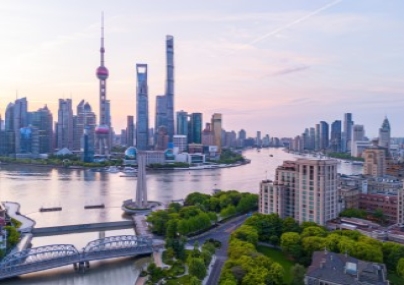In recent years, the Asia-Pacific region has become an economic powerhouse. IPO issuance from the Asia-Pacific region on average accounts for at least two-thirds of the global capital raised, and in 2012, three of the world’s top 10 IPOs originated from Malaysia alone. Additionally, among the top ten countries with the highest reserves of foreign exchange and gold, six countries are ranked from Asia. With this backdrop, the 23rd Inter-Pacific Bar Association Annual Meeting and Conference was held in Seoul in April 2013 to discuss current Asia-Pacific legal markets and issues.
Held at the Sheraton Grande Walkerhill Hotel in Seoul between Apr. 17 and 20, IPBA 2013 Seoul kicked off with a keynote speech by Il Sa-Kong, chairman of the Institute for Global Economics (IGE) in Seoul, who spoke about “Challenges and Opportunities for the New Asia.” This was followed by a discussion featuring Yoon-Dae Euh, chairman & CEO of KB Financial Group, Chang-Gyu Hwang, former CEO of Samsung Electronics, Mark McCombe, chairman of Blackrock in Asia-Pacific, and Brenda Foster, president of the American Chamber of Commerce in Shanghai, on how the business environment has changed in Asia and the rest of the world and the different types of strategies being implemented to deal with such changes.
On Apr. 18, the "Hear from the Managing Partners" session featured managing partners of law firms in Asia, Europe, and the U.S. who shared their insightful views about the opportunities and challenges in the global legal market. They were Michael Reynolds of Allen & Overy, Mark Leddy of Cleary Gottlieb Steen & Hamilton, Dennis Deng of Dacheng, Kye Sung Chung of Kim & Chang, Hisashi Hara of Nagashima Ohno & Tsunematsu, Francesco Gianni of Gianni, Origoni, Grippo, Cappelli & Partners and Richard Briggs of Hadef & Partners. The conference also featured special sessions on key legal issues of East Asia (in particular, Korea, Japan, and China) such as cross-border M&A, arbitration, competition law and business restructuring.
More than 1300 legal professionals, scholars and others from about 60 jurisdictions attended the IPBA 2013 Seoul, the largest number in the IPBA’s history.
Q&A with Kap-You (Kevin) Kim, Bae, Kim & Lee
1. Why is this a new age for international arbitration in South Korea?
This is an exciting time for international arbitration in South Korea as we have just celebrated the successful launch of a state-of-the-art dispute resolution facility in downtown Seoul. The Seoul IDRC is equipped with the latest technology, and promises a very high-quality experience to its users. It is an achievement for which the entire Korean arbitration community can be very proud.
2. What are some key arbitration trends you are observing?
We are seeing a significant increase in disputes arising from overseas construction projects - typically plants and infrastructure - involving Korean companies. Following a pronounced slowdown in the domestic construction sector starting in 2009, Korean construction companies, including many small- and medium-sized companies that had not been active in overseas markets, have become far more aggressive in bidding for overseas projects in recent years. In many of the resulting projects, disputes have arisen and we are currently acting for Korean contractors in a number of international construction disputes that have been referred to arbitration.
We are also representing a Korean construction company in an ad hoc investment treaty arbitration against a North African state. While we believe this to be the first case in which a Korean company has brought claims against a foreign state under an investment treaty, we expect investment treaty claims by Korean investors - including claims under umbrella clauses - to be more common in the future.
3. How is Bae, Kim & Lee positioning itself to benefit from these new/changing trends?
BKL has a long and successful history representing Korean construction companies in their domestic projects. As the focus of these clients has shifted decisively towards overseas projects in recent years, they are now asking us to assist them in international arbitrations involving those projects. Although BKL continues to handle other types of international arbitration cases, we now have a dedicated group of lawyers specialising in construction arbitration, and will continue to add resources in this area to ensure that we provide the best representation to our construction clients in their international disputes.
At the same time, BKL remains very focused on investment treaty arbitration. In addition to the ad hoc case in which we represent a Korean investor against a foreign state, we are currently representing the Republic of Korea in the first investment treaty arbitration ever filed against it by a foreign investor.
Follow us onTwitter: @ALB_Magazine.
 from the Asia-Pacific region on average accounts for at least two-thirds of the global capital raised, and in 2012, three of the world’s top 10 IPOs originated from Malaysia alone. Additionally, among the top ten countries with the highest reserves of foreign exchange and gold, six countries are ranked from Asia. With this backdrop, the 23rd Inter-Pacific Bar Association Annual Meeting and Conference was held in Seoul in April 2013 to discuss current Asia-Pacific legal markets and issues.
from the Asia-Pacific region on average accounts for at least two-thirds of the global capital raised, and in 2012, three of the world’s top 10 IPOs originated from Malaysia alone. Additionally, among the top ten countries with the highest reserves of foreign exchange and gold, six countries are ranked from Asia. With this backdrop, the 23rd Inter-Pacific Bar Association Annual Meeting and Conference was held in Seoul in April 2013 to discuss current Asia-Pacific legal markets and issues.

